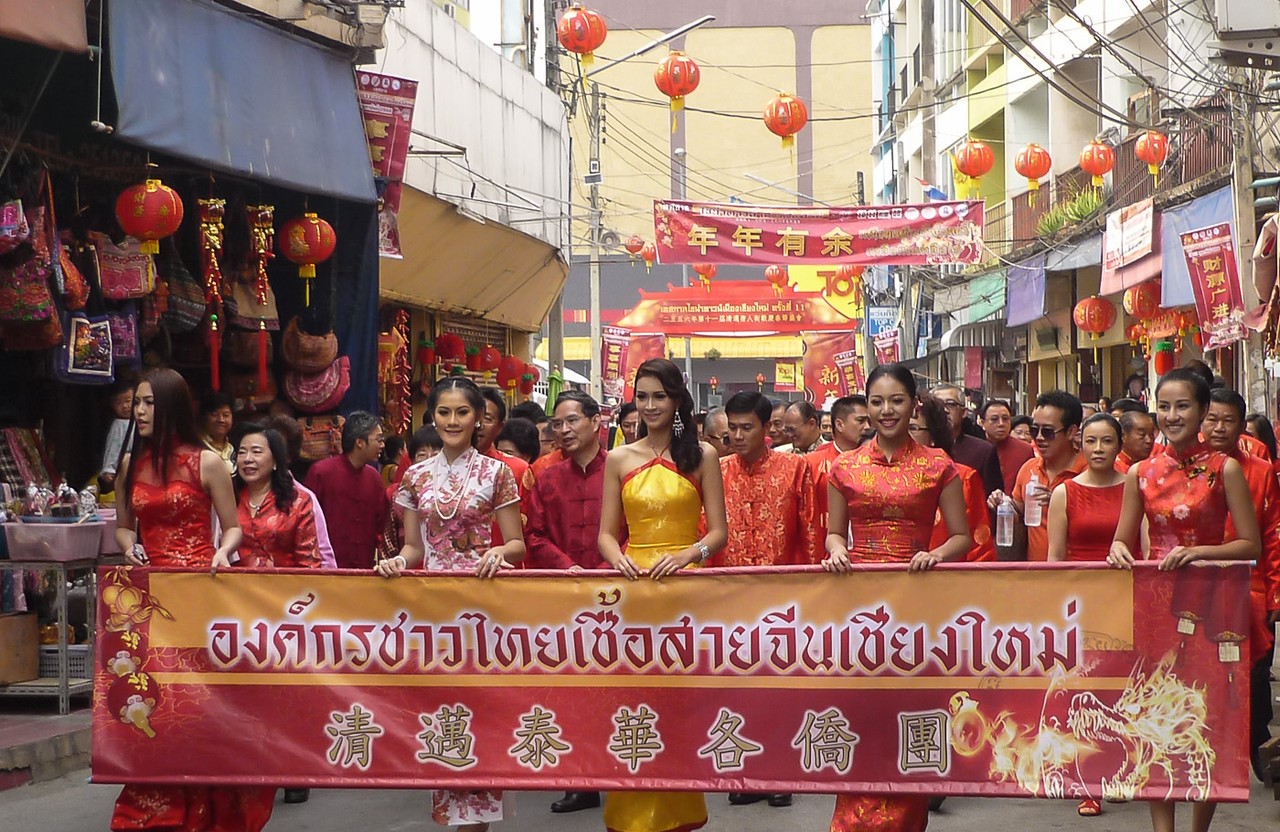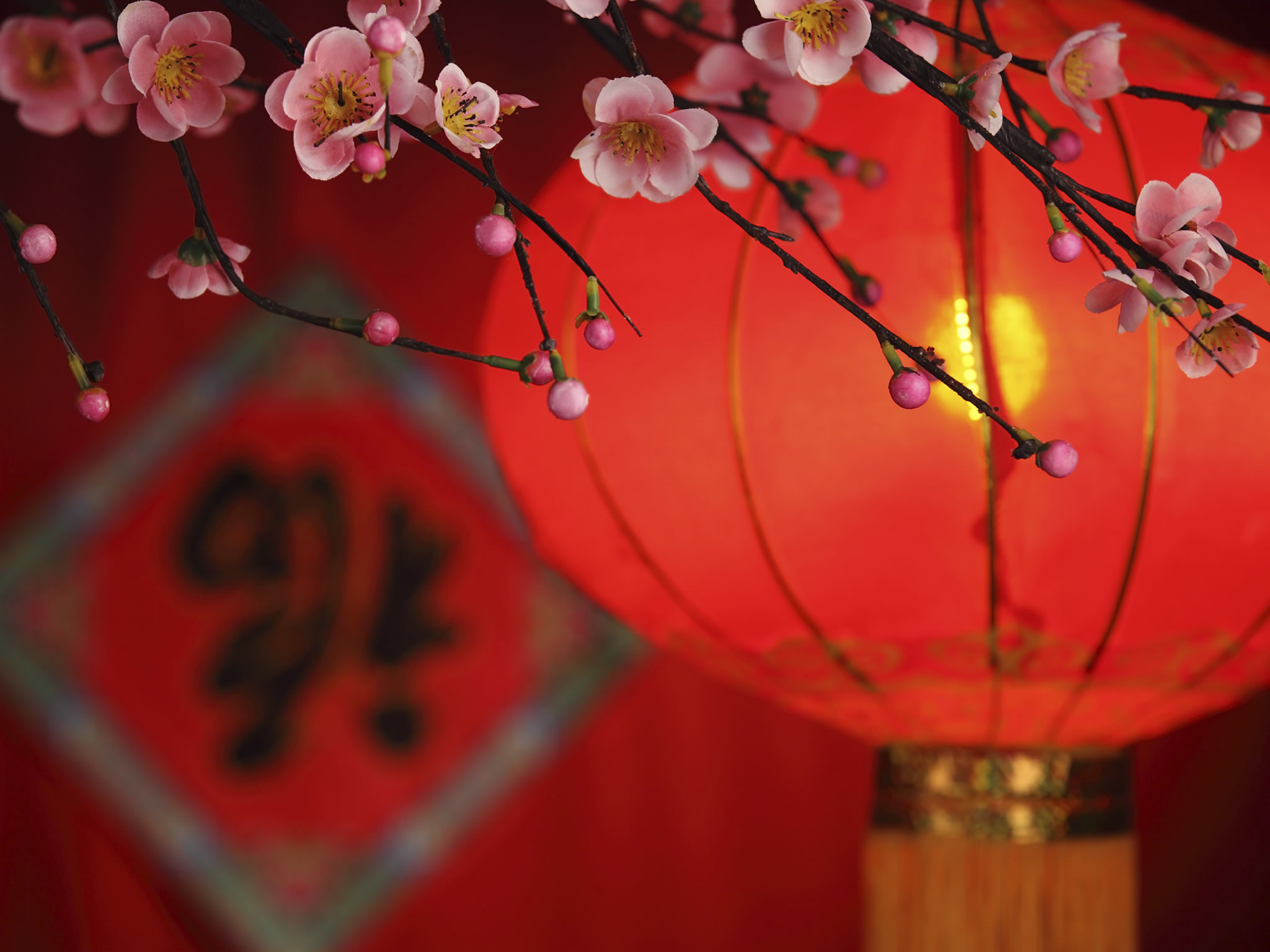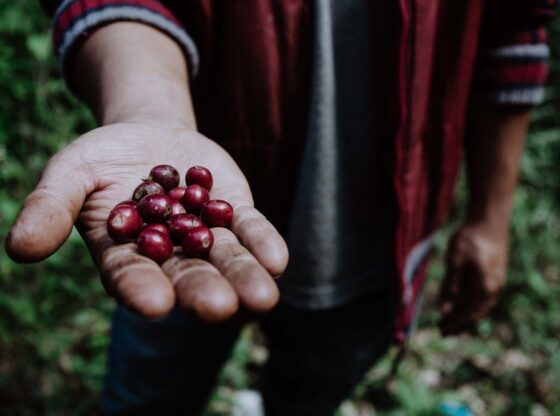![]()
CHINESE NEW YEAR 2018
‘The Year of the Dog’
Chinese New Year is a global event and will soon be upon us with spectacular celebrations.
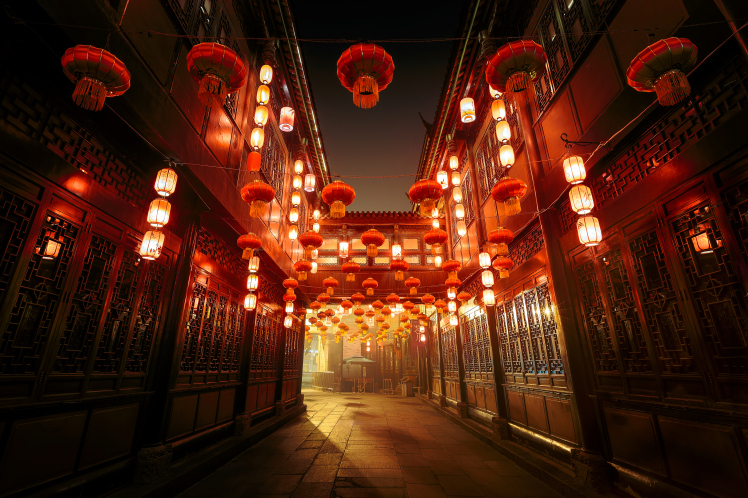
Chinese New Year is also known as the Lunar New Year and is a festival for families to come together and wish each other peace and prosperity.
The timing of Chinese New Year differs each year as it is based on the lunar calendar and normally falls between 21 January and 20 February.
This year New Year falls on February 16th.
The Chinese New Year has been associated with the Chinese Zodiac since the Spring Autumn Period (771 to 476 BC).
The main interest is which animal represents the year, this year it is the year of the dog. A zodiac animal on the lunar-solar Chinese calendar is represented annually. People are said to hold similar personality traits to the animal named after the year they were born.
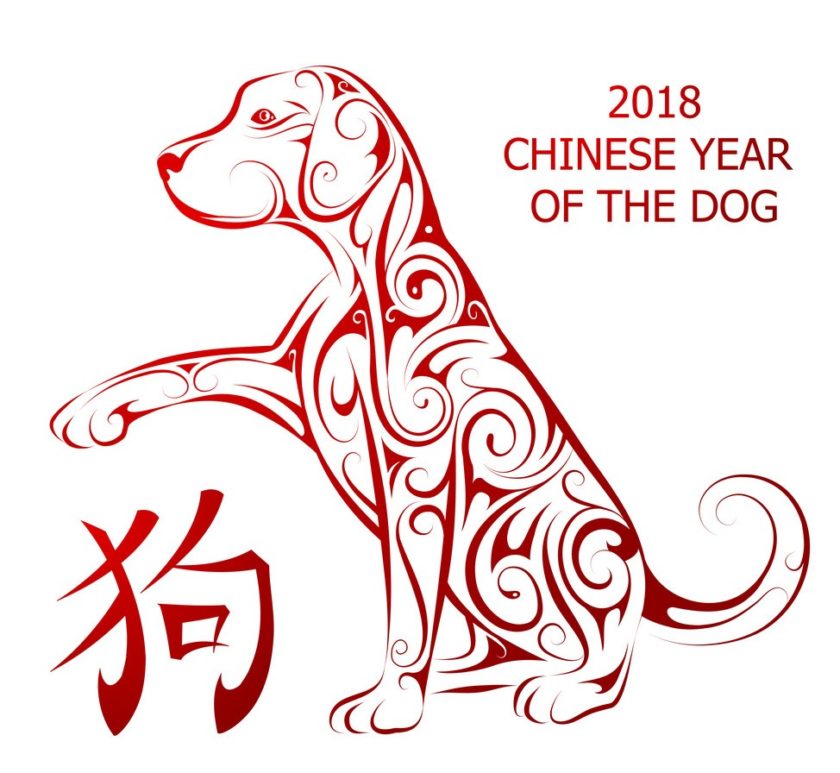
Year of The dog
Recent years of the Dog are: 1934, 1946, 1958, 1970, 1982, 1994, 2006, 2018
Paired with the Celestial Stems (天干—Tiān gān), there is a 60-year calendrical cycle. Although xū is associated with earth, the years also cycle through the five elements of nature (五行—wǔ xíng).
The Dog is the 11th of all zodiac animals. According to one myth, the Jade Emperor said the order would be decided by the order in which they arrived to his party. Monkey, Rooster and Dog were in another country, helping a god defeat evil spirits. After, they set off to the party together. Because they arrived at the same time, the Jade Emperor went by the order they met the god in the other country. Thus, Dog became 11th.
The Dog is also associated with the Earthly Branch (地支—dì zhī) xū (戌), and the hours 7–9 in the evening. In the terms of yin and yang (阴阳—yīn yáng), the Dog is yang.
In China, it is still popular to name dogs Wàng Cái (旺财). It means “prosperous wealth” and comes from dogs’ barking sounds (旺旺—wàng wàng).
Honest and loyal, Dogs are the truest friends and most reliable partner.
Chinese New Year in Thailand
Many Thais trace their roots to China. Officially, 14% of the population of Thailand is Chinese, but dependent on current fashion, a far greater percentage may identify themselves as “Thai-Chinese”.
Bangkok

Chinese New Year brings one of the most exhilarating celebrations to Yaowaraj, which is officially the Chinatown of Bangkok. The entire length of street comes to life with crowds of worshippers, exploding firecrackers, dragon dancers, and families of Chinese descent who gather to partake in the street fanfare as well as enjoy sumptuous Chinese banquets.
In other parts of Bangkok, Chinese restaurants and shopping malls roll out special Chinese New Year promotions, which range from discounts on goods and services to free feng-shui advice for their customers.
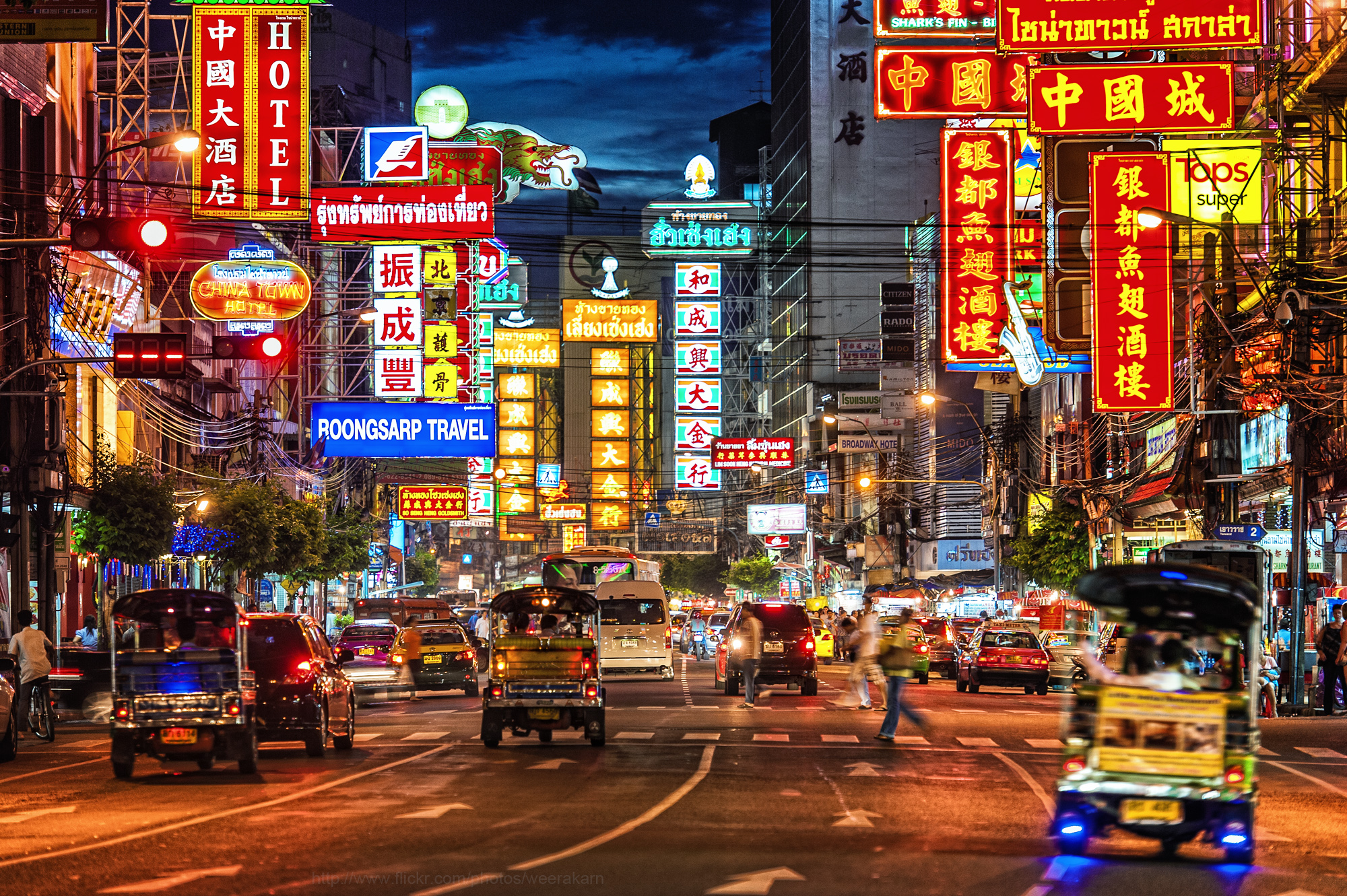
Plan to spend a full day exploring Chinatown as well as watch the dragon parade. On New Year’s Day, visit Lengnoeiyi Temple on Charoen Krung Street and pay respect to the gods and goddesses. While here, don’t forget to try your hand at ‘siem-see’ or Chinese fortune sticks.

Chiang Mai
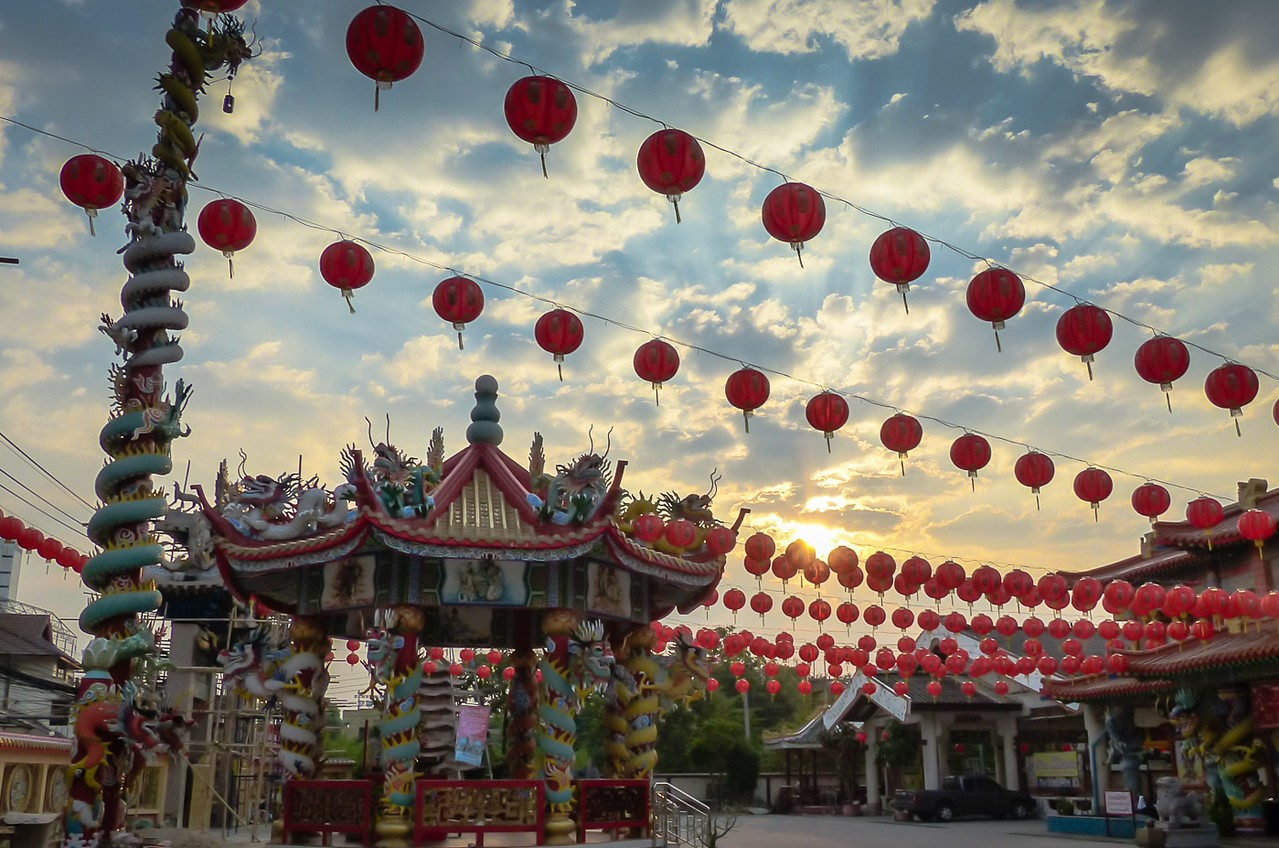
In Chiang Mai, the focus of the celebrations will be the Chinese temple at the Warorot (Kad Luang) market, by the Ping River. This year there will be fire dragon shows, lion dances and exhibitions of kung fu fighting from Guangxi Province in China.
There is also a photographic and art exhibition tracing the history of the Chinese community and the Warorot market. This will take place at Trok Lao Cho, one of the old wooden shop houses at the bottom of Tha Pae Road, adjacent to the market.
